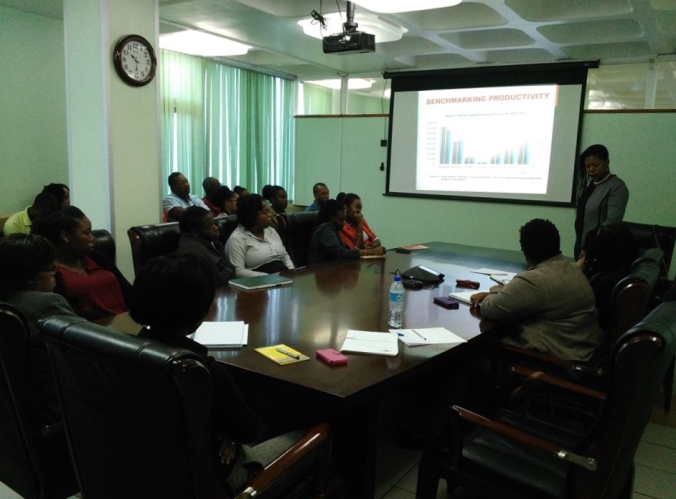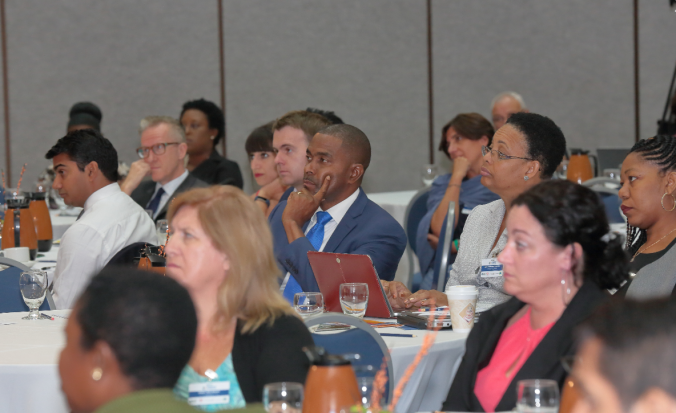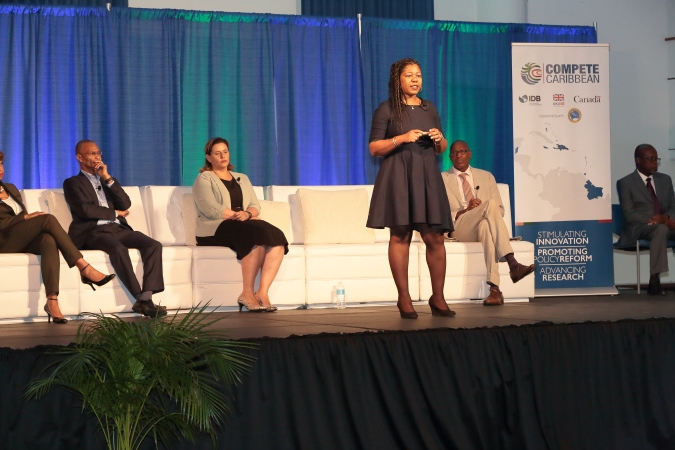Effective Leadership for Improved Workplace Productivity
The topic of genetics continuously presents a fascinating conversation to us. It is one in which perhaps an end may never be determined. Facets of our everyday lives throw us into contact with a potpourri of characters and personalities in the people that we interact with. The work place being no exception.
While the many variances in personalities and orientation may foster breakthroughs in innovative and diverse approaches and ideas, this diversity of breeds and thoughts can undoubtedly present the possibility of a chaotic atmosphere if not contained.
In a contained and controlled setting, these clashes may foster passionate exchanges of ideas that lead to innovation, improved productivity and stronger teams. In these instances, participants avoid personality-focused comments. When however, workplace conflict becomes personality-driven, it becomes destructive. It polarizes the workplace, distracts from the work, wastes time and energy and forces talented employees to leave.
In identifying these differences and their effects on workplace productivity, the NCPC ponders the question, “Are we prone by nature through our engraved genetics to be more productive than others or can our “productivity gene” be nurtured and groomed towards becoming more effective, productive and efficient in the work environment?
The NCPC takes the all assuming stance that while nature plays a significant role in the workforce productivity, nurture has the upper hand!
We can agree that Effective Leadership may very well be the catalyst to creating more conducive atmospheres for teamwork and creation of new leaders.
Excellent leaders know that identifying and nurturing leadership qualities in the team helps to increase productivity and presents people who are ready to step up to the plate when organizational changes occur, making new leaders necessary. Within the workplace, a good practice is to identify a number of people to whom certain functions can be delegated, these may include leadership roles.
With this in mind, it is important that leaders seek to avoid the trap of the “Crown Prince Syndrome” where the focus is on the development of only one individual. The development of all team members is important to the success of the workplace and will provide the organisation with a talent pool while also ensuring a viable succession plan in the event of unplanned employee departure.
Here are four characteristics of essential leadership qualities worthy of nurturing for continuity of the work plan and increase in workplace productivity:
Good Interpersonal Skills:
Excellent interpersonal communication skills are essential for a leader of any size team. If you notice that an employee is able to communicate effectively on different levels and adjust the conversation to the needs of the person they are communicating to, you have a potential leader among your staff.
Good Time Management Skills:
Leaders must be able to manage their own time and meet deadlines, especially those that impact on other team members’ tasks. Give your staff tasks and see who manages their own time effectively to complete the tasks. These are good leaders in the making.
Ability to Take the Initiative
Leaders must be able to respond quickly to solve problems and to take the initiative to prevent problems proactively from occurring. Anyone who not only can work unsupervised and still produce excellent work, but who will take the initiative to come up with a solution or solve a problem is well worth nurturing.
Ability to Work with Others in the Team
Every leader has to work with a myriad of personalities in a team environment. If you have staff members who consistently produce their best work when collaborating with others, you could have potential leaders. Good teamwork is a key leadership skill.
Now it is time to Nurture! Identify the potential leaders in the team, encourage the individuals to take on some small leadership roles, mentor and support the person to grow their leadership skills, and provide training in specific areas of leadership. Identifying and nurturing potential leaders in your team takes some time and dedication, but in doing so the workplace is provided with skilled individuals who are ready to take on the challenges of leadership when needed!
About the National Competitiveness and Productivity Council (NCPC)
Established in October 2013, The National Competitiveness and Productivity Council (NCPC) is responsible for the identification of key issues related to competitiveness and productivity in Saint Lucia.
The NCPC and its Technical Secretariat is committed to providing the necessary advocacy and research to produce timely and effective recommendations to policymakers on issues that affect both competitiveness and productivity on island. For more information about productivity or on the NCPC, visit www.stluciancpc.org; www.facebook.com/stluciancpc, call 468-5571/5576 or send an e-mail to stluciancpc@gmail.com
 The Oxford dictionary defines patriotism as a ‘vigorous support of one’s country’. The word is also defined as ‘A devotion or cultural attachment to one’s homeland’. Patriotism simply put, signifies ‘a love for country.’ It is a desire to see one’s country grow and develop whereby citizens can enjoy a higher standard of living. Therefore, patriotism demands good citizenship. It requires that individuals contribute to the well-being of their community and country as a whole. When citizens care about the good of society, they are encouraged to perform at their best thereby contributing to the welfare of their organisation, community and country at large. Thus, being a patriotic individual calls for greater commitment and dedication which can have a positive impact on the productivity of the organisation that one is employed with.
The Oxford dictionary defines patriotism as a ‘vigorous support of one’s country’. The word is also defined as ‘A devotion or cultural attachment to one’s homeland’. Patriotism simply put, signifies ‘a love for country.’ It is a desire to see one’s country grow and develop whereby citizens can enjoy a higher standard of living. Therefore, patriotism demands good citizenship. It requires that individuals contribute to the well-being of their community and country as a whole. When citizens care about the good of society, they are encouraged to perform at their best thereby contributing to the welfare of their organisation, community and country at large. Thus, being a patriotic individual calls for greater commitment and dedication which can have a positive impact on the productivity of the organisation that one is employed with. The holiday season takes place at the same time every year. However, most of us are still caught off-guard when December rolls around. With so much to plan for and to execute, the whole experience sometimes proves overwhelming. This becomes even more apparent when an everyday work life is added to the mix. Usually, by the first week of December our brains have begun conjuring up thoughts of presents, decorating and entertaining at home. Therefore, when at the office it can prove difficult to switch off and focus on the day to day tasks that we are faced with. However, a little thought and planning can aid in preparing for Christmas and the New Year without infringing on work assignments.
The holiday season takes place at the same time every year. However, most of us are still caught off-guard when December rolls around. With so much to plan for and to execute, the whole experience sometimes proves overwhelming. This becomes even more apparent when an everyday work life is added to the mix. Usually, by the first week of December our brains have begun conjuring up thoughts of presents, decorating and entertaining at home. Therefore, when at the office it can prove difficult to switch off and focus on the day to day tasks that we are faced with. However, a little thought and planning can aid in preparing for Christmas and the New Year without infringing on work assignments.

